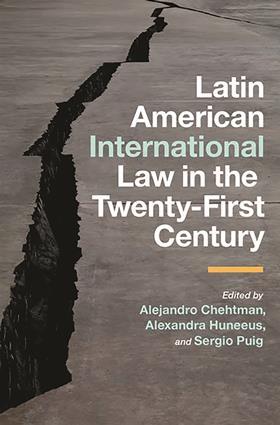Latin American International Law in the Twenty-First Century

Editors: Alejandro Chehtman, Alexandra Huneeus and Sergio Puig
£115, Oxford University Press
★★★★✩
This weighty tome comprises 31 essays totalling over 600 pages and tells you everything you could possibly wish to know about the current shape and standing of Latin America law. In adopting a similar style, the contributors produce punchy and illuminating pieces that look at the cultural region’s legal system from many different angles.
The book is broadly chronological, beginning with a history of how countries’ legal systems developed as they achieved independence from Europe, culminating in the Montevideo Convention in 1933. The fifth and final section focuses on contemporary challenges.

All kinds of topics are covered in between. Highlights include analysis of Peruvian economist Hernando de Soto (pictured above) and his theories of law’s effect on economic development; the role of truth commissions in Latin America; and the orientation of contemporary legal education (we are told that Brazil is the only Latin American nation that requires an exam to get a practising licence, worth noting if any UK lawyers are thinking of emigrating). The rights of indigenous peoples, LGBTQ issues, and environmental concerns are all discussed in a factual and non-sensationalist manner. The tone is intellectual without adopting an overly academic writing style.
The format of the book makes it ideal to dip into – and you cannot help but pick up plenty of interesting facts and conclusions.
Lee Wall is an associate with Irvings Law in Liverpool































No comments yet